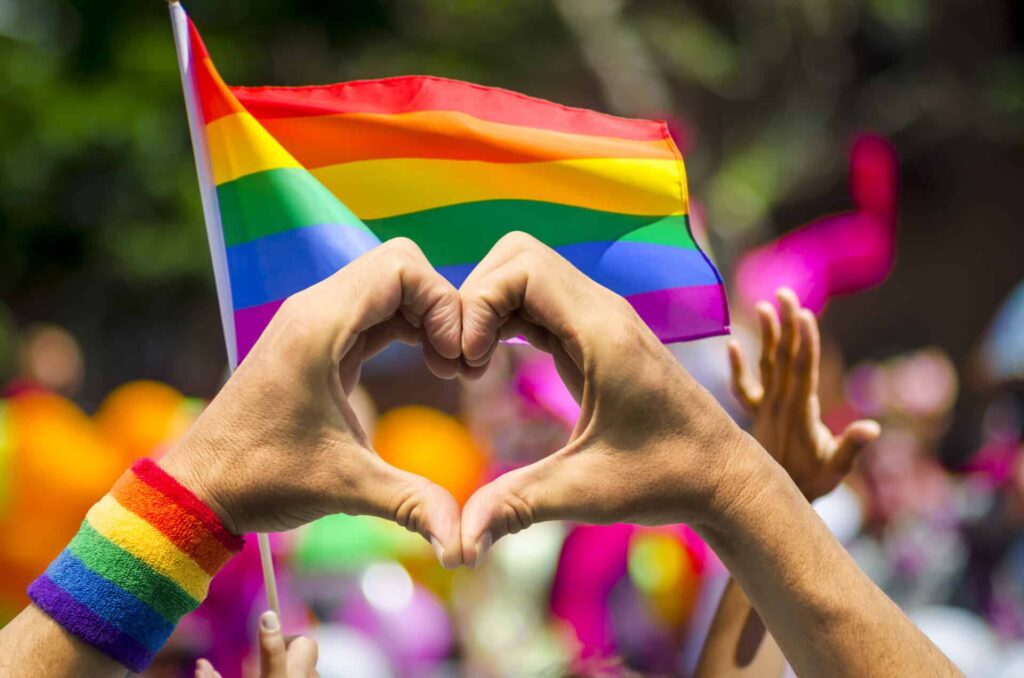The LGBTQ community is millions strong. Everyone in the community shares the joys of being queer, but many of them also share common pains.
Gay and lesbian people have alcohol and tobacco use disorders at more than twice the rate of straight people. Transgender students use drugs at 2.5 times the rate of cisgender students.
Why are rates of drug use so much higher amongst LGBTQ people? How can an LGBTQ person begin their recovery? What therapies can they take, including in an inpatient space?
Answer these questions and you can help end the scourge of addiction in the LGBTQ community. Here is your quick guide.
Why Addiction Is Common
There are several reasons why addiction rates are high in the LGBTQ community. All factors play a role, and solutions to addiction require a comprehensive approach that mitigates all factors.
Discrimination
A 2020 survey from the Center for American Progress found that more than one-third of LGBTQ Americans faced discrimination over the previous year. Roughly half of LGBTQ Americans report feeling moderate or significant psychological impacts due to their discrimination.
The psychological impacts include feelings of isolation, self-blame, and resentment. A person experiencing queerphobia may assume that their trauma is their fault. This causes them to turn away from others for support.
LGBTQ people turn to a number of ways to cope with discrimination. Drugs and alcohol are one avenue. A person consuming drugs may forget about their trauma or feel a temporary uplifting feeling.
This temporary feeling can lead to dependency. After a certain point, someone may feel happy only after they consume drugs.
Mental Health
Mental health and addiction are closely tied to each other. Someone may start taking drugs to mitigate the symptoms of a mental health problem. Addiction can trigger a mental health disorder, including PTSD and depression.
Mental health in the LGBTQ community is a complicated issue. Nearly 40% of lesbian, gay, and bisexual adults have a serious mental illness. Transgender, genderqueer, and gender non-conforming people report similar or higher rates.
Many LGBTQ young people struggle with some sort of mental illness. A 2019 study found that nearly half of LGBTQ youth have suicidal thoughts. This may lead some young people to start taking drugs.
Healthcare Access
The Center for American Progress also asked LGBTQ people about their access to healthcare. Roughly 30% of respondents stated that they could not access healthcare due to cost issues. 15% said they postponed or avoided treatment due to discrimination.
Transgender and genderqueer Americans in particular face healthcare problems. More than half of transgender people had difficulty paying for healthcare. One-third of transgender respondents said that they had to teach their doctor about transgender people in order to get the right care.
This means that some people may use drugs to self-medicate. If they run into a problem with addiction, they may not feel comfortable going to rehab.
How to Start Getting Help
Anyone with addiction can start getting help right away. There is no need to “hit rock bottom” or develop a serious dependency.
Quitting cold turkey is many people’s solution to addiction. But it can be dangerous and imperfect. Someone with a dependency on drugs or alcohol should turn to another person for support.
Many organizations operate to help LGBTQ people in particular. The Trevor Project runs a hotline for LGBTQ youth to call.
LGBTQ centers are located in most American cities, including in rehab centers in San Diego. A person can place a call to a center, or they can stop by unannounced and speak to a counselor there.
Some people run interventions in order to convince their friends or relatives to seek treatment. This can be effective, but an intervention can also anger someone and make them feel lonely. It works best when everyone respects each other and speaks courteously.
A one-on-one conversation may be most effective to convince someone to speak treatment. The conversation should be spontaneous, giving the person with an addiction time to process what is being said.
Everyone should work on reducing discrimination against LGBTQ people however possible. Someone who hears a homophobic or transphobic comment should speak up.
People should educate themselves on LGBTQ issues, especially medical professionals who work with LGBTQ patients. People should use one another’s preferred pronouns and names.
LGBTQ Addiction Therapy
The most common addiction therapies work for LGBTQ and non-LGBTQ people alike. Many people begin with detox programs that wean their bodies off of drugs or alcohol.
Once an individual has completed a detox program, they can move to another therapy. Cognitive-behavioral therapy is a form of talk therapy that mitigates a person’s negative thinking patterns. If someone feels insecure or weak about themselves and they use drugs, they can work with a therapist to replace those feelings with positive ones.
LGBTQ counselors are available at certain drug treatment centers. They may be LGBTQ themselves, or they may have special training to talk about homophobia and transphobia. A person can talk about their history dealing with discrimination and come up with positive ways to cope.
People can participate in inpatient therapy, staying in a residential space while they receive treatment. Many centers provide a separate housing option for LGBTQ people. This allows people to share their stories with each other and avoid encountering bigotry while they get addiction help.
Reap the Rewards of Recovery
The facts do not lie. Many people in the LGBTQ community struggle with addiction. Persistent discrimination, mental health problems, and lack of access to healthcare are the reasons.
Yet there are recovery solutions. An LGBTQ person can go to a number of groups for support. They can have conversations with others in informal settings about addiction recovery.
Detoxification removes the presence of drugs in a person’s body. Talk therapy and residential programs train the individual to find new ways of coping with stress.
Do not halt before getting help. Apex Recovery serves LGBTQ San Diego residents. Contact us today.

